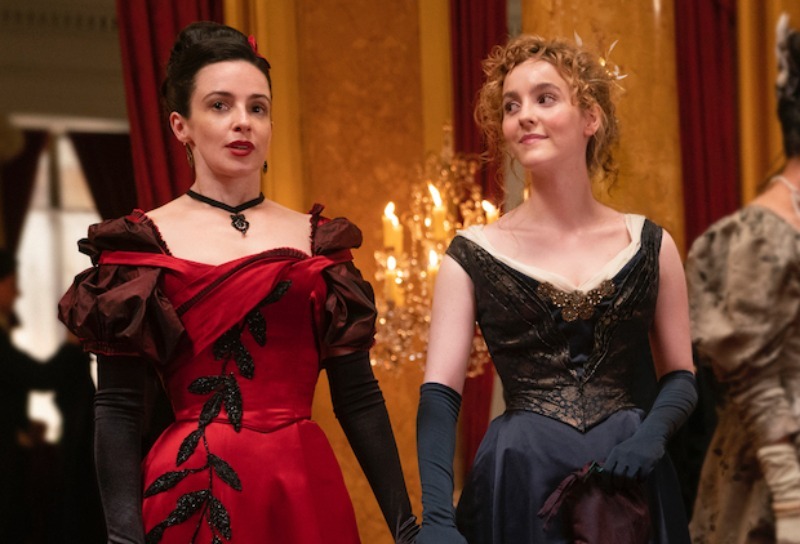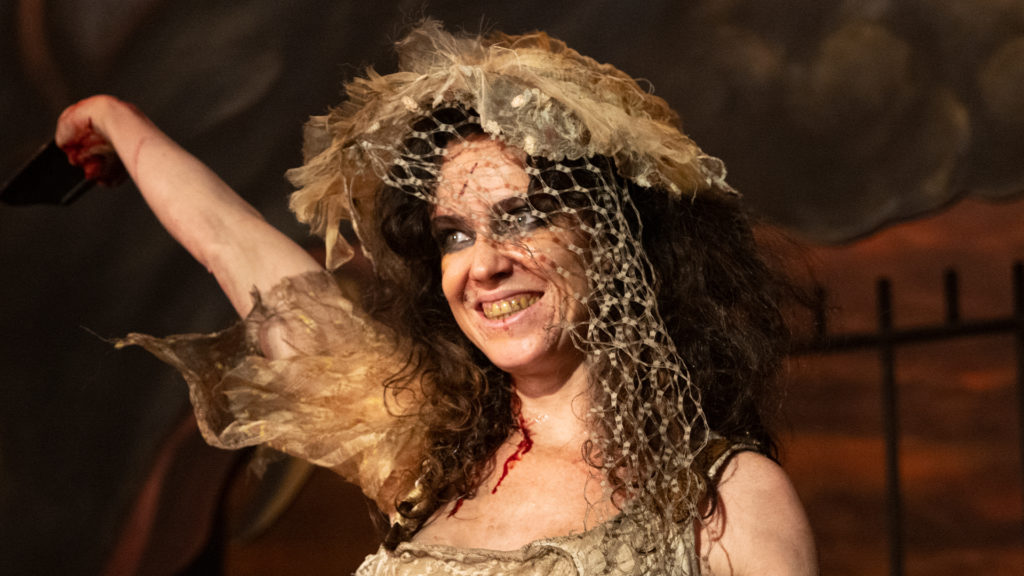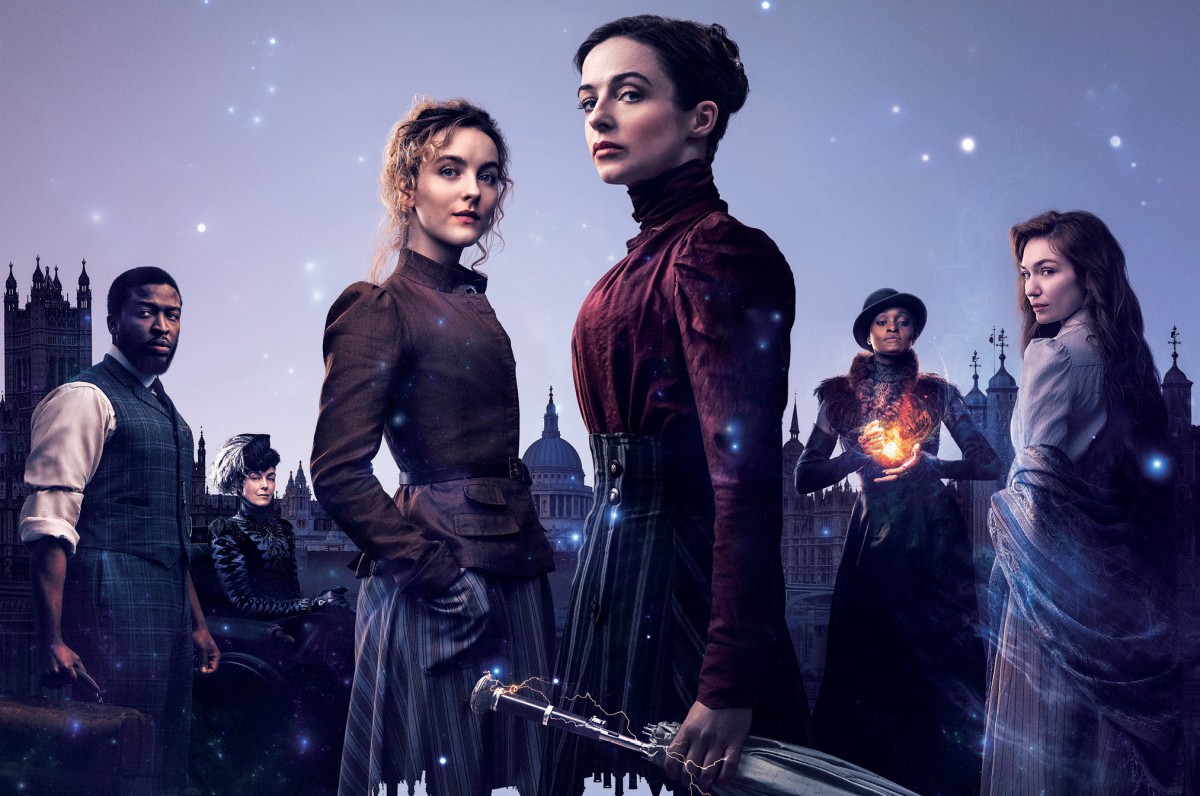
TV REVIEW: The Nevers S1E1: “Pilot”
The Nevers is a show that I was cautiously intrigued by, but also one that I feel somewhat conflicted about. For better or worse, Joss Whedon casts a large shadow over this show, especially as he wrote and directed this episode as well as created the show. Outside circumstances led to Whedon wisely distancing himself from the production, although his presence is still noticeable in the script and directorial approach. The distancing is to the show’s benefit, as The Nevers starts on a largely promising note thus far.
One of my concerns coming into The Nevers is that it’s quite open with its influences and what this show is. This series openly borrows the core concept of the X-Men, except inserted into the setting of Victorian-era London. This is unquestionably a deliberate decision, given that Whedon wrote a well-regarded run on Astonishing X-Men, and his comic book credentials are well-known from his work on Marvel’s Avengers. This is fair game, since Stan Lee didn’t invent the idea either; he was influenced by pulp novels like A.E. Van Vogt’s Slan as much as by the Civil Rights era. The question isn’t about the novelty of the idea itself, but whether The Nevers could offer a sufficiently interesting spin on the concept, and whether the characters would be interesting enough to make the story compelling.

In these respects, the pilot of The Nevers offers a promising start to the series. While the focus of the show is the concept of The Touched as 19th Century mutants, the execution is different enough to be interesting in its own right. There are very few one-on-one comparisons between specific characters—Lavinia Bidlow is very much the show’s Charles Xavier, for example. However, even Maladie, the pilot’s arch-villain, is less an obvious Magneto figure and more a damaged and broken woman who is thrust into the Magneto role. The main characters, Amalia True and Penance Adair, also don’t borrow obviously from established comic book archetypes. Their dynamic is perhaps more similar to John Steed and Emma Peel than to Scott Summers and Jean Grey, drawing more from Whedon’s British television influences than his comic book influences. Their powers are largely not too similar to the X-Men’s either, and where they are, the show gives twists to make things more interesting. The girl who could speak in tongues draws on Doug Ramsey’s translation power from The New Mutants, but the idea of her being unable to control it is a clever take on the idea. Likewise, Penance Adair seems to draw on Forge’s power of invention, but the concept of it being based on energy sensitivity is likewise a workable approach.
Additionally, the story does an excellent job in taking advantage of the period to make the world of The Nevers look distinct. The series takes advantage of the social unrest of the time period, as well as the idea of approaching change. Various factions in this world are distinctive and don’t draw too obviously on Whedon’s influences. The character of Hugo Swann, a debaucherous nobleman who corrupts influential clients and blackmails them, is an interesting potential antagonist. I’m also intrigued by the Beggar King, an information broker who is as useful as he is untrustworthy. However, Gilbert Massen is the most interesting antagonist; though he represents the Robert Kelly figure to some extent, his ideology differs noticeably and makes him more than simply an anti-Touched bigot. These characters set the series apart from its predecessor and make the world feel alive and compelling.

The acting in this series is quite good, feeling both like a period piece as well as an adventure series. That makes The Nevers an interesting experiment, though it requires a cast that can deliver a good range. The cast is held together by Laura Donnelly as Amalia True, and she has more than enough presence as the heroine of the show. Ann Skelly plays the softer, more empathetic Penance Adair, and her performance offers a good contract to Donnelly’s harder edges as Amalia. Olivia Williams puts in a strong performance as Lavinia, the advocate for the Touched and the mentor to the two leads. The supporting cast is deep and varied, and all the actors give life to the world of Victorian London. Pip Torrens is fascinating to watch as Massen, bringing charisma and physical presence that a good antagonist should have. However, the most captivating performance comes from Amy Manson as Maladie; the opera scene is powerful and Manson’s Maladie runs between menacing to sympathetic to creepy and disturbing within a handful of minutes. I’m quite sold on this cast, and I look forward to seeing what more they can do in these roles.
This is not to say that this pilot episode is flawless, because there are some small issues with it. The show doesn’t always make story elements clear, and it’s not immediately obvious what is going on at certain points. There were points where a little more exposition was needed, especially towards the end of the episode. The extra materials add a bit more context that help understand the story, but it was missing within the episode itself. Additionally, there are times where the Whedonisms are a little too glaring, especially if you’re familiar with his previous work. Amalia is very much the typical Whedon heroine in some aspects, and if you’ve seen his other shows, you won’t be surprised by the way she’s written in this. Certain tropes we see in the episode are things we’ve seen before as well; Maladie’s insane quirks at times are reminiscent of characters like Drusilla. Some of the humorous moments are a bit forced, and don’t necessarily add anything to the proceedings. If you’re a fan of Whedon-style writing, these elements may not present a problem, but if you’re not, they may be too noticeable and distracting. Still, these are not significant problems, though hopefully the show will polish these elements moving forward.

All in all, I’m intrigued by The Nevers and remain interested in where this series is going. Although certain aspects of the show are all too familiar, it’s my hope that the series will move away from the familiar tropes and into new territory. Fortunately, the show offers more than enough interesting twists and intriguing characters that I’m willing to be patient until it gets there. I’m willing to give the series a chance and see where it goes, at least for the moment.
Score: 4.5/5
Network: HBO
Writer/Director: Joss Whedon
Cast: Laura Donnelly, Ann Skelly, Olivia Williams, James Norton, Tom Riley, Pip Torrens, Zackary Momoh, Ben Chaplin, Amy Manson, Nick Frost, Viola Prettejohn, Eleanor Tomlinson
Author Profile
- Steve Sellers had been a fan of superheroes ever since Superman: The Movie. But it took the JSA, the Legion of Super-Heroes, Dragonlance, Lord of the Rings, Twilight Zone, and Chris Claremont's legendary run on the X-Men to make him a writer and a longtime fan of comics, fantasy, and science fiction. Steve is the co-creator of WHITE DRUID & MICHAEL NERO and GUARDIANS OF ELAYIM for Omen Comics, and he is also the creator of BLITZ and SHOCKWAVE for Revelation Comics (an imprint of Omen Comics).









